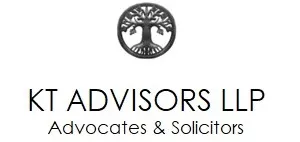The obligation of statutory auditors to report fraud under Indian Company law has been traditionally perceived as a governance safeguard to protect minority shareholder interests. Aggrieved shareholders can engage with statutory auditors by providing relevant information, and if auditors assess and consequently report 'fraud' - this can be tactically engaged as a tool to secure strategic injunctive relief from company law courts against disingenuous and fraudulent controlling shareholder by an activist minority shareholder.
Background
Corporate governance issues are a recurring reality for Indian minority shareholders and investors. Non-controlling minority shareholders of a company often face fraudulent action, mismanagement, and oppression from controlling shareholders. This can be in various forms such as unfavourable related party transactions, mismanagement of company's resources, vendor and supply chain frauds, fraudulent accounting, and improper financial reporting etc.
Evidence suggests that Indian corporate entities have seen a significant increase in mis-governance incidents and fraud in the recent times – a report by Kroll-CII noted a significant jump of 10% in 2021 – 22 from a reported 57% in 2019. 1 The jump in numbers is despite numerous governance incidents being 'handled' and 'managed' by the management / controlling shareholders. Such incidents result in value erosion for minority shareholders and long-term impairment for the company. In the Indian context, such incidents remain fairly common in family-owned and controlled entities, and entities without negotiated founders' agreement / shareholders agreement largely governed by 'honour codes' and 'handshakes'.
Statutory auditors have a mandatory reporting obligation to board and audit committees and/or central government in connection with a fraud or suspected fraud beyond identified threshold. Section 143 of the Companies Act, 2013 ("CA 2013") read with Rule 13 of the Companies (Audit and Auditors) Rules, 2014, Companies (Auditors Report) Order, 2020 ("CARO, 2020") and the Auditing Standards (SA) issued by Institute of Chartered Accountants of India ("ICAI") govern the regulatory framework on fraud reporting by statutory auditors in India. Separately, a circular dated 26 June 2023 issued by National Financial Reporting Authority of India reiterates the duties of statutory auditors and has reignited discussions on auditor responsibilities. Statutory auditors have been described as 'watchdog' for corporate governance 2, responsible for ensuring governance and protecting the interests of shareholders by Indian Courts.
We argue and establish that, in addition to being an effective protective shield, the provisions relating to fraud reporting by statutory auditors of a company can be (and are being) used as a sword.
Statutory auditor – role of a watchdog, and duty to protect the shareholders
Statutory duties of an auditor in relation to the shareholders and the company are covered under Section 143 of the CA 2013, which inter alia, include (i) enquiring into financial transaction undertaken by the company 3 ; (ii) preparing audit report for members of the company basis its financial statements 4 to be laid before the general meeting of shareholders; and (iii) reporting matters involving frauds against the company to the Indian Central Government ("Central Government 5 ) and the company's board or Audit Committee of the company - depending on the quantum of fraud.
Indian courts have also taken a shareholder-first approach while interpreting the role of an auditor within the Indian corporate governance structure. Auditors have been held to have a fiduciary duty towards the shareholders and are required to act in a manner to safeguard the shareholders against misappropriation of their resources. 6 An auditor is expected to examine the accounts of the company with a view to inform the shareholders of true financial position of the company and thus, protect their interests. 7 Courts have even remarked that the examination by an independent auditor is "practically the only safeguard which the share-holders have against the enterprise being carried on in an un-business like way or their money being misapplied or misappropriated without their knowing anything about it". 8 The role of statutory auditors has evolved to be the 'gatekeeper' of corporate governance keeping in mind interests of shareholders.
Mandatory fraud reporting obligations of statutory auditors
CA 2013 requires statutory auditors to report fraud to the Indian central government ("Central Government") subject to certain conditionalities. 9 If during the course of performance of his duties, the auditor has "reason to believe" that a fraud involving an amount of INR 1 crore (~$ 120,000) or more, is being or has been committed against the company by the officers or employee, it must be reported to the Central Government. 10 CARO, 2020 requires the statutory auditor to disclose fraud and the amount involved in the auditor's report. 11 Immaterial of the monetary threshold, the instance of suspected fraud must be reported to the board of the company or the Audit Committee by the auditor.
Fraud – Inclusive and defined in broad strokes.
'Fraud' has been widely defined under CA 2013. The explanation to Section 447 of the CA 2013 specifies:
""fraud" in relation to affairs of a company or any body corporate, includes any act, omission, concealment of any fact or abuse of position committed by any person or any other person with the connivance in any manner, with intent to deceive, to gain undue advantage from, or to injure the interests of, the company or its shareholders or its creditors or any other person, whether or not there is any wrongful gain or wrongful loss". 12
Limited but emerging jurisprudence in India suggests that fraud under Section 447 should be given the widest possible meaning 13 . The Delhi High Court in its judgment of 15 September 2023 has categorically held that "the term 'fraud' as used in Section 447 of the 2013 Act is in itself an all- encompassing term which has been given the widest possible meaning" 14 . A similar sentiment has been echoed by the Bombay High Court which has held that "The definition of fraud under Section 447 of the Companies Act, 2013 is of wide amplitude and transcends beyond the traditional concept of fraud, namely deceit coupled with injury". 15
The Standards of auditing (SA) for auditors issued by the Central Government in consultation with ICAI, the statutory body for regulation of accountancy professionals and accounting practices in India, also defines 'fraud' widely – as intentional act by the management of the company, involving use of deception to an unjust or illegal advantage. 16 By extension, a similar interpretation in favour of triggering reporting obligation would be logical in cases involving money laundering or tax evasion when the company could be potential penalised 17 . A narrower interpretation of fraud by the statutory auditor, and consequent non-reporting could potentially fall foul of the statutory requirements and could expose statutory auditors to potential claims for professional misconduct and additional penalty under CA 2013 which could be imprisonment for a term which may extend to 1 year and fine which shall not be less than INR 1,00,000 ($ 1200) and which may extend to INR 25,00,000 ($ 30000). 18
National Financial Reporting Authority Circular of 26 June 2023
A recent circular dated 26 June 2023, issued by the National Financial Reporting Authority (NFRA) ("NFRA Circular"), the statutory authority established through CA 2013 for ensuring compliance with accounting and statutory auditing standards, clarifies the legal position and reaffirms the duties of statutory auditors in relation to fraud reporting. The NFRA Circular reiterates the mandatory obligation of the statutory auditors to report fraud or suspected fraud on observing suspicious activities, transactions, or such circumstances where there are reasons to believe that an offence of fraud is being or has been committed against a company by its members or employees. 19 The NFRA circular clarifies that the definition of fraud is wide and non-compliance with onerous fraud reporting obligations may have penal consequences for the statutory auditor. 20
Substantively, the NFRA Circular re-iterates existing legal position, but the language is interesting for 2 particular reasons.
- Firstly, it acknowledges that the "auditors are not fulfilling their statutory responsibilities" and addresses the problem of auditors' resign upon discovery of fraud – fairly common practice amongst smaller sized audit and accounting firms. Our experience indicates that that auditors remain fearful of reporting fraud and drawing regulatory scrutiny despite safe harbour provisions under law. CA 2013 is clear that no duty to which an auditor of a company may be subject to shall be regarded as having been contravened by reason of his reporting the matter if done in good faith, and an auditor will not be subject to professional misconduct if the auditor discloses information acquired in course of professional engagements while complying with reporting obligations 21 ; and
- Secondly, the call for auditor to exercise "professional scepticism" and the warning against being "influenced by legal opinion provided by the Company or its Management" is a push for auditors to apply independent mind and review the material on record. This is consistent with Indian Supreme Court's positions on "reason to believe" - a subjective opinion should be based on material on record. 22 This is likely to result in auditor's documenting their reasons for determining fraud and engaging external advisors to assist in reviewing the materials on record given the outer-limit on reporting fraud.
Fraud Reporting – Securing strategic interim relief in oppression and mismanagement petitions
Specified members of a company can approach National Company Law Tribunal ("NCLT") seeking remedies under provisions against oppression and mismanagement (O&M) governed by Section 241 – 246 of CA 2013. The powers of the NCLT to grant relief under this section is wide, and the NCLT can grant reliefs which are just and equitable in nature – such as restraining further identified prejudicial action by oppressing faction, status quo orders (on shareholding and/or directorships) or orders restraining creation of third-party interest in the company's shares or assets.
However, as matters under Insolvency and Bankruptcy Code are being given primacy before the NCLT and NCLAT ("Company Law Tribunal(s)"), the average timelines for final adjudication of oppression mismanagement matters have significantly increased. Shareholder actions pursued through petitions under Section 241 and Section 242 are often relegated to the end of the listing board. 23
In this light, it could be strategic for the aggrieved minority shareholder to secure interim relief to protect its interest in the company and prevent continuing prejudice while awaiting final and conclusive adjudication of the matter by the Company Law Tribunals which can be time-consuming. In O&M petitions under Section 242, NCLT has the power to make "any interim order which it thinks fit for regulating the conduct of the company's affairs upon such terms and conditions as appear to it to be just and equitable". The Indian Supreme Court 24 and NCLAT 25 confirms the position specific to O&M petitions that interim order may be passed which regulate the affairs of the company to be conducted on just and equitable terms.
General principles regulating interim orders allow such orders basis 3 fundamental tenets – prima facie case, balance of convenience, and irreparable injury or violation of the right of petitioner not capable of being adequately compensated in terms of damages.
Reporting of a fraud by statutory auditor basis reporting obligations under the CA 2013 read with the recent NFRA circular can be a highly effective shareholder activist tool to establish a prima facie case and establish that the balance of convenience lies with the aggrieved shareholder. Fraud having been reported by an auditor emphasizes that the watchdog has perused the material on record and has taken a subjective call – typically, this is of immense persuasive value for Company Law Tribunals to grant interim injunctive relief in aid of aggrieved shareholder. Apart from obvious tactical advantages, a favourable interim injunction could potentially allow a minority investor or shareholder to negotiate an exit or put in place governance guard rails to prevent further fraudulent action.
Footnotes
1 Confederation of Indian Industries, 'CII Kroll India Fraud Survey - Second Edition' https://www.mycii.in/KmResourceApplication/77474.CIIKrollIndiaFraudSurveyReportDigitalFinal7Oct21.pdf accessed on 10 October 2023
2 In re: Kingston Cotton Mill, (1896) 2 Ch 279 at 288, UK Court of Appeal; Institute of Chartered Financial Analysts of India and Ors. v. Council of the Institute of Chartered Accountants of India and Ors, AIR 2007 SC 2091, para 41
3 Section 143 (1), Companies Act, 2013
4 Section 143 (2), Companies Act, 2013
5 Section 143 (12), Companies Act, 2013
6 Institute of Chartered Accountants of India v. P.K. Mukherji, AIR 1968 SC 1104, para 8
7 Commissioner of Income Tax, Madras v. G.M. Dandekar, AIR 1953 Mad 152, para 8
8 Deputy Secretary to the Government of India v. S.N. Das Gupta, AIR 1956 Cal 414, para 14
9 Section 143(12), Companies Act, 2013
10 Rule 13, Companies (Audit and Auditors) Rules, 2014; The auditor is required to report the fraud through Form. No. ADT – 4. Rule 13 requires the auditor to report the matter to board or audit committee within 2 days of his knowledge of the fraud and seek their reply within 45 days. The auditor is thereafter required to forward his report and report from the board with his comments to the central government within 15 days from the date of receipt of the report.
11 Rule 3(xi), Companies (Auditor's Report) Order, 2020
12 Section 447, Companies Act, 2013
13 Ashish Bhalla v. State and Ors., 2023/DHC/6608, para 27
14 Ashish Bhalla v. State and Ors., 2023/DHC/6608, para 27
15 Sanjay Kumar Surana v. Serious Fraud Investigation Office, 2022 ALLMR (Cri) 3524, para 39
16 Paragraph 11, Standard on Auditing 240 (SA 240), 'Auditor's responsibilities relation to fraud in an audit of financial statements'
17 "For example, if the auditor comes to know that the company has filed a fraudulent return of income to evade income tax, he may have to report this fraud under Section 143(12) irrespective of whether adequate provision has been made in the books of accounts or not." para 58, page 52 of 'Guidance Note on Reporting on Fraud under Section 143(12) of the Companies Act, 2013'
18 "Acting in a fraudulent manner, directly or indirectly, by an auditor is a very serious misconduct and therefore the necessary consequence of indulging in such fraudulent act shall follow", Union of India v. Deloitte Haskins and Sells LLP, AIR 2023 SC 2575, para 14. "The touchstone for judging professional misconduct, however, remains the compliance with SAs (Auditing Standards", In Re: Gulshan Jagdish Jham, NFRA Order No. NF-20012/1/2022, para 20
19 Paragraph 4.1, NFRA Circular No. NF – 25013/2/2023 dated 26 June 2023
20 Paragraph 2.3, NFRA Circular No. NF – 25013/2/2023 dated 26 June 2023
21 Section 143(13), Companies Act 2013; Also see para 20, page 37 of 'Guidance Note on Reporting on Fraud under Section 143(12) of the Companies Act, 2013'
22 N Nagendra Rao v State of AP, AIR 1994 SC 2663, para 5
23 Nikhil Parikshith, 'The progressive decline of an Equitable Jurisdiction' (Livelaw, 09 January 2022) https://www.livelaw.in/columns/companies-act-national-company-law-tribunal-nclt-family-run-companies-equitable-jurisdiction-189100 accessed on 16 October 2023
24 Cascade Energy Pte v. Archer Power Systems Private Ltd., Civil Appeal No. 9388 of 2017, para 2
25 BSE Ltd. v. Ricoh Company Ltd, Company Appeal (AT) No. 25 of 2016, para 23
The content of this article is intended to provide a general guide to the subject matter. Specialist advice should be sought about your specific circumstances.


